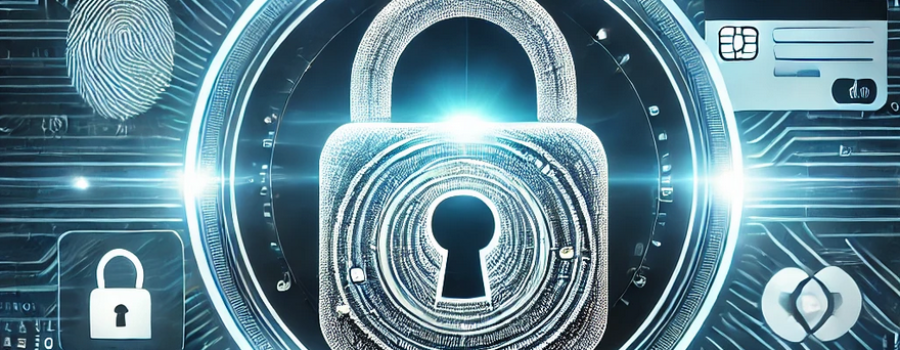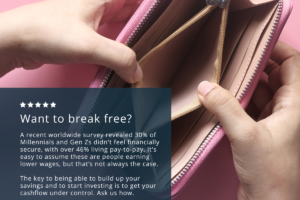The Scam Statistics continue to alarm us. The ACCC’s Scamwatch received more than 95 578 reports from January to April this year. Many of these individuals have fallen victim to identity theft.

Identity theft is when someone gains access to your personal information to steal money or gain other benefits. They can create fake identity documents in your name, get loans and benefits or apply for real identity documents in your name, but with another person’s photograph2.
Once your identity has been stolen it can be difficult to recover and the financial and emotional consequences can be devastating for victims.
What type of information do cybercriminals try to steal?
A cybercriminal may look to steal a range of personal information including:
| Name. | Date of birth. |
| Driver’s licence number. | Address. |
| Mother’s maiden name. | Place of birth. |
| Credit card details. | Tax file number. |
| Medicare card details. | Passport information. |
| Personal Identification Number (PIN). | Online account username and login details. |
How do you know if your identity has been stolen?
Look out for these common warning signs:
- Your bank statements show purchases or withdrawals you have not made.
- You stop receiving mail you may be expecting (e.g., electricity bills) or receive no mail.
- You receive bills or receipts for things you haven’t purchased or statements for loans or credit cards you haven’t applied for.
- A government agency may inform you that you are receiving a government benefit that you never applied for.
- You have been refused credit because of a poor credit history due to debts you have not incurred.
- You may be contacted by debt collectors.
How you can help protect yourself and your family
Cybercriminals can learn a lot about you from your social media accounts. Here are some tips to help protect yourself and your family:
- Limit what you share online. Reconsider sharing information on social media like your birthday, photos of a new house that include your address, photos that identify your children’s school, or details of schools you attended. These details are often used for security questions on financial and other important accounts.
- Set your social media privacy settings to ‘private’. Ensure you’re only sharing your photos and posts with people you know and trust.
- Don’t accept ‘friend’ requests from strangers.
- Always manually verify official website addresses, and never use links from messages. Cybercriminals often impersonate well-known organisations and ask you to confirm your personal details via messages or websites. Because of this, many companies now state they will not ask you to update or confirm your details, like passwords, PINs, credit card information, or account details via links in messages.
- Think twice before entering your personal details into a website you’re not familiar with.
- Use strong, unique passwords (passphrases) for each online account. Cybercriminals crack weak passwords – there’s even software that guesses billions of passwords per second!
- Keep your devices updated with the latest software, including antivirus software. Installing software updates will give you the latest security. You can even set updates to install automatically. Cybercriminals use bugs in software (known as malware) to gain access to devices.
- Don’t use Wi-Fi hotspots or free Wi-Fi when you are doing something personal or sensitive on the internet as the Wi-Fi may not be secure. Learn more about using public Wi-Fi networks securely.
- Regularly check your account statements including credit cards, bank statements, telephone and internet bills for possible fraudulent activity.
- Check your credit report at least once a year to help you catch any unauthorised activity.
- Be alert offline too. Always lock your mailbox and shred any sensitive documentation you no longer need. Be wary of phone calls that ask for your personal information. Be wary of people trying to view your PIN while you are using ATMs and making other purchases.
What to do if you think your identity has been stolen
If you suspect any fraudulent use of your identity, there are some steps you should take:
- Immediately report it to your bank, local police, social media account’s website, or other online accounts that you may be concerned have been hacked into (these sites usually have a ‘Help’ section where you can report fraudulent activity to and seek help).
- Lodge a report with the Australian Cyber Security Centre’s ReportCyber.
- Change the passwords on your accounts and close any unauthorised accounts.
- Request a credit report from a reputable credit reference bureau. A credit reporting body must give you access to your consumer credit report for free, once every 3 months.
Learn more and get help
IDCare is Australia and New Zealand’s national identity support service. IDCare offers personalised support to individuals who are concerned about their personal information. Find out more about IDCare by visiting www.idcare.org.
The Australian Cyber Security Centre, www.cyber.gov.au/acsc, is a government initiative with some great resources to help protect yourself and your business online.
The information contained in this article is general information only. It is not intended to be a recommendation, offer, advice or invitation to purchase, sell or otherwise deal in securities or other investments. Before making any decision in respect to a financial product, you should seek advice from an appropriately qualified professional. We believe that the information contained in this document is accurate. However, we are not specifically licensed to provide tax or legal advice and any information that may relate to you should be confirmed with your tax or legal adviser.
- https://www.scamwatch.gov.au/research-and-resources/scam-statistics ↩︎
- https://www.cyber.gov.au/report-and-recover/recover-from/identity-theft ↩︎





